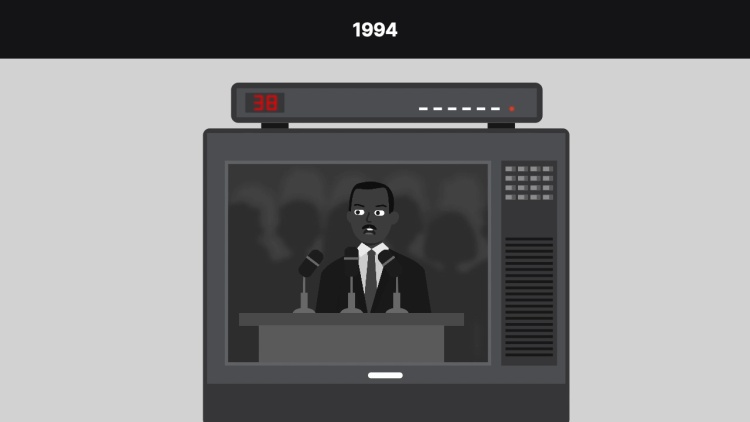Estate of Martin Luther King, Jr., Inc. v. CBS, Inc.
United States Court of Appeals for the Eleventh Circuit
194 F.3d 1211 (1999)

- Written by Cynthia (Anderson) Beeler, JD
Facts
On August 28, 1963, Martin Luther King, Jr. gave a speech (the speech), famous for the phrase “I have a dream,” during the march on Washington. The march was organized by King, as the founder of the Southern Christian Leadership Conference (SCLC). SCLC sought and obtained extensive news and media coverage of the march on Washington and King’s speech. On September 30, 1963, King filed for copyright protection for the speech under the Copyright Act of 1909. King and, later, the estate of Martin Luther King, Jr., Inc. (the estate) (plaintiff) licensed use of the speech and renewed the copyright protection periodically, as required. In 1994, CBS, Incorporated (CBS) (defendant) produced a documentary series about important events in the twentieth century. One of the segments covered King’s march on Washington, and included footage from CBS’s archives showing significant portions of the speech. CBS did not license the use and refused to pay royalties. The estate sued CBS for copyright infringement. CBS moved for summary judgment, arguing that the speech was not subject to copyright protection, because King’s public delivery constituted a general publication of the work. The district court granted CBS’s motion for summary judgment, noting that there was additional disputed evidence to suggest that written copies of the speech were made publicly available as well. The estate appealed.
Rule of Law
Issue
Holding and Reasoning (Anderson, C.J.)
What to do next…
Here's why 907,000 law students have relied on our case briefs:
- Written by law professors and practitioners, not other law students. 47,100 briefs, keyed to 996 casebooks. Top-notch customer support.
- The right amount of information, includes the facts, issues, rule of law, holding and reasoning, and any concurrences and dissents.
- Access in your classes, works on your mobile and tablet. Massive library of related video lessons and high quality multiple-choice questions.
- Easy to use, uniform format for every case brief. Written in plain English, not in legalese. Our briefs summarize and simplify; they don’t just repeat the court’s language.





